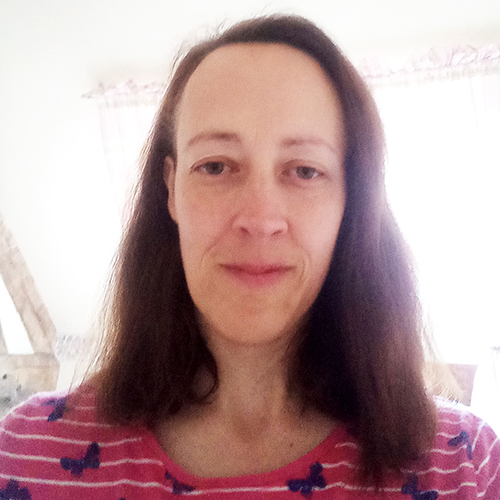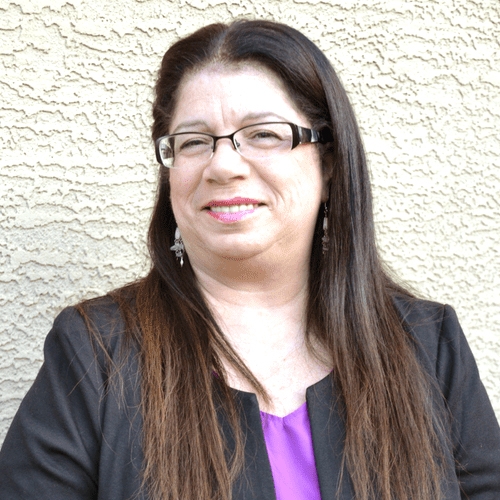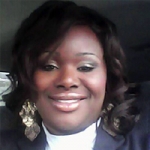 IBCLC Detailed Content Outline: Psychology, Sociology, and Anthropology Focused CERPs - Section V
IBCLC Detailed Content Outline: Psychology, Sociology, and Anthropology Focused CERPs - Section V
Access CERPs on Psychology, Sociology, and Anthropology for the IBCLC Detailed Content Outline recertification requirements. Enjoy convenient on-demand viewing of the latest Psychology, Sociology, and Anthropology focused IBCLC CERPs at your own pace.
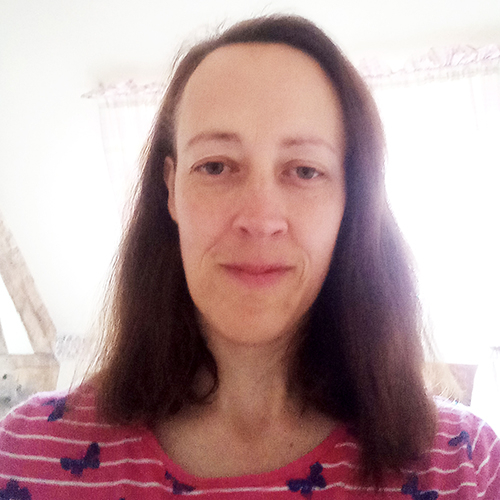

I studied Biology at the University of York (UK) before training as a midwife in Norwich (University of East Anglia, UK) I have been a stay at home parent for the past few years but continue to read on the physiology of birth which is my passion and have written for MIDIRS midwifery magazine. I am a member of AIMS (Association for the Improvements in the Maternity Services) UK and an Associate member of the Royal College of Midwives.
Labour and birth cause huge changes in the neurophysiology, involving multiple hormonal and neurological systems. These will be discussed in detail and how this knowledge can be used in midwifery practice. The recent concept of "birthing consciousness" describes changes in maternal consciousness during labour (Dahan et al, 2020). The physiology of attachment and effects of parent-neonate separation will also be discussed, especially surrounding neonatal care.
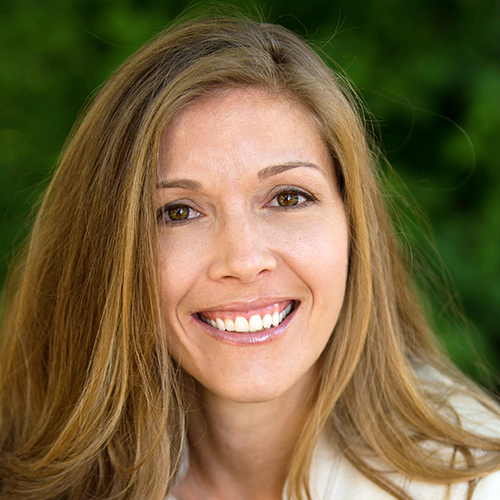
The Neuroscience of Connection: Understanding Regulation for Ourselves and Others

Lisa Dion, LPC, RPT-S, is an international teacher, creator of Synergetic Play Therapy, founder and President of the Synergetic Play Therapy Institute, and host of the Lessons from the Playroom podcast. She is the author of Aggression in Play Therapy: A Neurobiological Approach for Integrating Intensity and is the 2015 recipient of the Association for Play Therapy’s Professional Education and Training Award of Excellence.
Research in neuroscience and interpersonal neurobiology sheds light on the need for parents/caregivers to act as their child's external regulator during states of dysregulation as the child learns how to self-regulate. When activated, children need to borrow the parent's regulatory capacity as their own regulatory system is developing. Without an understanding of what regulation is and what it isn't and the importance of parents knowing how to regulate their own arousal states, parents may inadvertently be increasing the child's dysregulation instead of helping to modulate it for integration. Over time, this can significantly impact the parent's ability to stay attuned and present to the child, as well as themselves. It can also lead to a child's regulatory system not being patterned to its optimal potential. In this discussion, Lisa Dion will discuss what regulation is and is not helping participants understand what it really takes to create a deep connection.
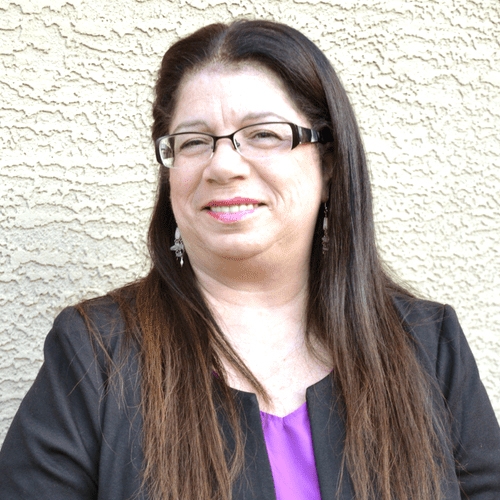

Lori J. Isenstadt, IBCLC, CCE, CBD, began her IBCLC career in 2 large hospitals and a local breastfeeding clinic. In 2007, she opened her practice, All About Breastfeeding, offering private consultations, and breastfeeding classes. Her expertise ranges from basic breastfeeding through the most complicated of breastfeeding challenges. In the last 30 years, Lori has taught breastfeeding classes to over 8000 parents where she focuses on what they should expect in the early days of breastfeeding. Lori is a member of Toastmasters International and enjoys speaking about mothering and breastfeeding. Lori is the host of All About Breastfeeding, a podcast where she interviews mothers, authors, researchers and physicians about topics related to breastfeeding. Lori believes that breastfeeding is a family affair. To help support her mission to educate families as well as corporations and business owners about breastfeeding, she has recently released the most comprehensive audio breastfeeding masterclass. She has produced over 300 shows many of which focus on breastfeeding educational topics. On a personal note, Lori resides in Phoenix, AZ is married to Alan for 38 years and is the mother of three adult children. Lori can be reached by email: [email protected] and website: www.aabreastfeeding.com
Topic: The Good news about delivering bad news: how to present difficult information to parents - [View Abstract]
Topic: The Original Foster-Mother Were Wet Nurses - [View Abstract]
The historical evolution of infant feeding includes direct breastfeeding, wet nursing and bottlefeeding. Before the invention of bottles/ vessels to feed babies, wet nursing was the safest and most common alternative way to feed a baby. As bottles and nipples were developed, scientific advancement improved formulas, wet nursing fell out of favor. It gradually went from being widely accepted as the most normal way to feed a baby to where we currently are as a modern society. It is negatively seen as being weird and risky behavior. When mothers do not breastfeed or give their babies human milk, they use formula to feed their babies. Given the current knowledge of lack of complete nutrition formula has more mothers are showing an interest and actively pursuing wet/cross nursing. This presentation will help us understand the history of wet nursing and offer reasons to support, advocate and be encouraging to mothers who want to participate in the practice of wet/cross nursing.

View Details / Enroll
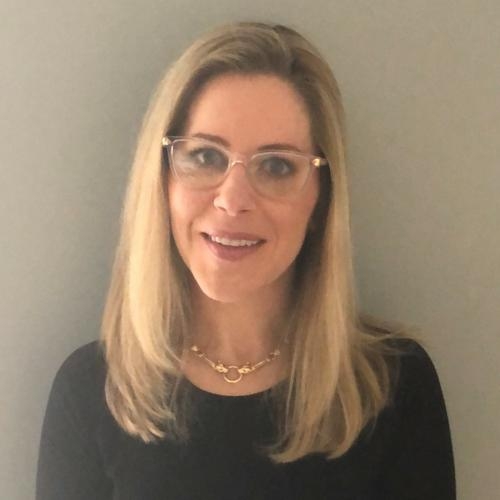

Susan Winograd, PT, owns and operates a private Pelvic Health and
Wellness practice in Boca Raton, Florida called Pelvicore Rehab LLC.
She specializes in Woman's Health, Men’s Health issues, and
Pre and Postnatal Care.
She has earned a Scar Release therapy Certification from Acumed
and is certified in the Wurn Technique and Clear Passage Approach.
Susan earned a masters degree from the College of Staten Island in
1998. In her 22 years of clinical experience she has gained extensive
knowledge in the treatment of various populations such as orthopedics,
manual therapy, geriatrics, pediatrics and men/women's pelvic dysfunction,
and prenatal/postpartum care.
She has continued her post graduate educate through seminars with
The Herman and Wallace Institute, MPS Scar Release Therapy, Myofascial
Release, The institute for Birth Healing, Clear Passage Therapies, and is pursuing education in Cranial Sacral therapy with the Upledger Institute
and Total Body Balancing with the D’Ambrogio Institute.
Susan enjoys teaching workshops throughout South Florida on pelvic
health and wellness related topics.
Her hands-on treatment approach of treating the whole person has
often led her to discover the primary or contributing cause of pain,
dysfunction, or imbalance was pelvic floor related.
Her passion and commitment now is treating, healing, and educating
her patients and healthcare providers with pelvic floor dysfunction using a
whole body approach to relieve pain, restore optimal function, and
improve quality of life.
She is committed to providing the highest quality of individualized
that care that every patient deserves.
Topic: The Fourth Trimester: Postpartum Healing and Recovery - [View Abstract]
Topic: The Pelvic Floor and the Core; A Dynamic Duo - [View Abstract]
The pelvic floor is a fascinating structure that is responsible for so many basic but critical functions essential to our survival. This group of muscles is directly impacted during pregnancy, birth and in the postpartum healing period. Midwives are amazing advocates for women. In my practice, it has become obvious that midwives that are knowledgeable in pelvic health and wellness play a critical role in recognizing when this system is not functioning optimally and are then able to advocate and provide support to their clients that go far beyond the birthing process. In this presentation, I will present information about the pelvic floor that will give midwives a deeper understanding of pelvic floor functions and how it is intimately related to the core system in our body. This will give midwives the knowledge to support their clients and advocate for them in the most holistic way of facilitating women to have easier pregnancies and births and the most efficient postpartum healing. "
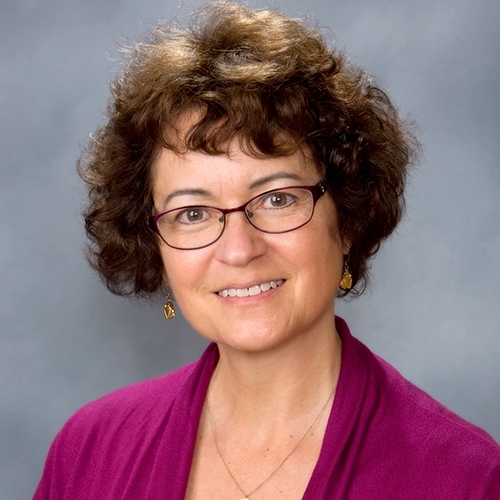
The Postpartum Nest: Helping Parents Lay the Foundation for Their Child's Lifelong Health

Darcia Narvaez, Professor Emerita of Psychology, University of Notre Dame researches moral development and flourishing from an interdisciplinary perspective, integrating anthropology, neuroscience, clinical, developmental and educational sciences. Her earlier careers include professional musician, business owner, classroom music teacher, classroom Spanish teacher and seminarian, among other things. She grew up bilingual/bicultural but calls the earth her home. Dr. Narvaez’s current research explores how early life experience influences wellbeing and moral character in children and adults. She is a fellow of the American Psychological Association and the American Educational Research Association and former editor of the Journal of Moral Education. She is on the advisory boards of Attachment Parenting International, Kindred, Your Whole Baby, and the Self Reg Institute. She has numerous publications, including more than 20 books such as Indigenous Sustainable Wisdom: First Nation Know-how for Global Flourishing; Basic Needs, Wellbeing and Morality: Fulfilling Human Potential and Embodied Morality: Protectionism, Engagement and Imagination. A recent book, Neurobiology and the Development of Human Morality: Evolution, Culture and Wisdom won the 2015 William James Book Award from the American Psychological Association and the 2017 Expanded Reason Award. She blogs for Psychology Today (“Moral Landscapes”) and hosts the webpage EvolvedNest.org.
Every animal has a developmental system or nest for its young that matches up with the maturational schedule of offspring. Humans have a nest too although many people don’t realize it. The human nest refers to the experiences and care that a child receives after birth and in the years that follow. Modern child raising has changed significantly from the nest of our ancestors with concerning results. Learn more about the epigenetic impact of the early nest and how early life experience influences wellbeing and sociomoral character in children and adults as well as societal culture. Delegates will gain an understanding of the essential components of the early nest (including touch, responsivity, breastfeeding, alloparents, positive social support, play, and soothing perinatal experiences) along with ways to empower parents to incorporate them into their infant’s care to create a foundation for lifelong health and well being.
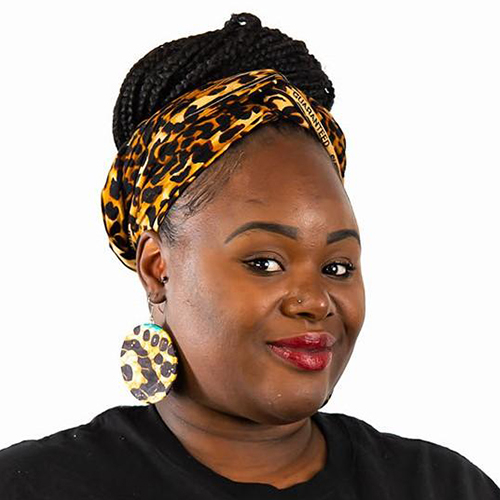

Brandi Gates-Burgess is a Lactation Consultant at Highland Hospital, Community Engagement specialist for the MILK Research Lab, serves on the Community Advisory Board of the UCSF Preterm Birth Initiative, and Co-chairs The Breastfeeding Cultural Outreach Taskforce (BCOT). Recently, Brandi transitioned from her 16-year career providing lactation support to families of the California WIC Program and decided to live her dream. She started her non-profit organization Breast Friends Lactation Support Services where she provides group lactation education and support to Black Families in the Bay Area. She is a mother to 4 breastfed children, wife and world traveler.
Topic: The Power of Mentorship - [View Abstract]
In Alameda County, Black women are initiating exclusive breastfeeding, but only ~15% remain breastfeeding by 3 months. For impoverished Black women, especially those in their teen years or who may have less than high school education, these numbers are even lower (9-12%). There is minimum breastfeeding support for black families.
When Black mothers in West Oakland who received peer and professional breastfeeding support through Breast Friends, exclusive breastfeeding at 3 months rose to 63%. This project expanded the Breast Friends model to East Oakland while also training 12 new peer counselors (including 1 father), 24 new group facilitators, and enhancing breastfeeding messaging in the California Black Infant Health program. The project surpassed our expectations. 5 out of the 12 trained peer counselors are now working in other community organizations as Community health outreach worker, peer counselors, doulas and WIC staff.

View Details / Enroll
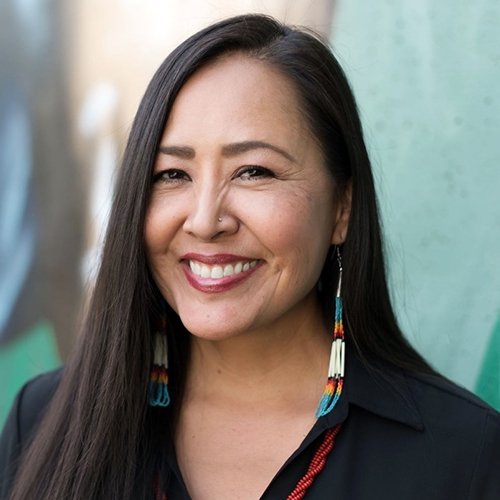
The Power of Story Telling: A Tool for Addressing Historical Trauma and Breastfeeding

Kim is born for Naakaii Diné (Mexican People) and from Tsi’naajinii (Black Streak People) clans. Born in Tuba City, maternally from Tolani Lake, AZ located in the southwestern area of the Navajo Nation. Growing up on and off the Navajo Nation, and residing in various tribal communities throughout her life, Kim is passionate about utilizing her education and experience to promote healthy living through kinship values.
Kim is a International Board Certified Lactation Consultant and has over 10 years of experience in peer-counseling, clinical and educational lactation. Kim’s work has been inclusive of Tribal and culturally diverse communities serving the needs of prenatal, newborns, and post-partum mothers and families. She is a Co-Instructor for the Indigenous Breastfeeding Counselor training course providing cultural breastfeeding and clinical education to those that can serve their community throughout Turtle Island. She also independently consults with Changing Woman Initiative out of New Mexico, a free access birth center serving Indigenous women to reproductive wellness. She is serving her second term on the United States Breastfeeding Committee Board of Directors. Currently, Kim continues to work at Valley Wise Health Medical Center as a Hospital lactation consultant for eight years and is serving the front lines assisting families and COVID mothers during the pandemic with breastfeeding and hospital policies. She also implemented the first Arizona Lactation Mentorship Pilot Program at Valleywise Hospital mentoring two student interns. This allows access to clinical hours to create strategic initiatives to bring BIPOC diversity, equity and inclusion to the field of lactation.
Currently a member of the Advisory Council Committee for the Navajo Nation Breastfeeding Coalition; she will the Urban Dine’ Community Representative for the Phoenix area. This new role will include breastfeeding home visits and telehealth lactation support serving the urban and telehealth rural BIPOC community. She recently collaborated with Wellness Within Reach also providing breastfeeding education and one on one breastfeeding support. Kim's extensive experience in this field has led to opportunities in consulting, which along with her husband synthesized their consulting business in Tribal Indemnity. Within three years, Tribal Indemnity has assumed responsibility of complex projects and strategic planning with one of the largest Tribes in Arizona. She recently established her own small business, Indigenous Breastfeeding Az, dba.
Kim enjoys spending time with her husband of twenty-three years and three daughters of whom she breastfed until they were 2 years old. She also loves early morning runs, hiking, boxing and yoga.
Native people are natural story tellers. This method of knowledge exchange has been around for thousands of years. Story telling is a fundamental tool that has been used to pass down information, share ideas and a teaching opportunity within Indigenous communities. It allows understanding of lived experiences and consequences to sustain and restore balance for many generations. An important component of lactation counseling is we can learn from an Indigenous lens from listening to one’s story when addressing breastfeeding families.
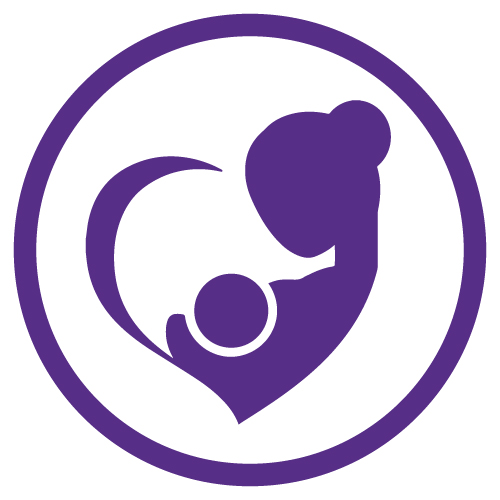
View Details / Enroll
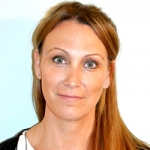
The Power of Storytelling - The Human Experience in the Neonatal Intensive Care

Jodi is registered nurse with a strong passion for preemies, developmental care in the NICU, parent teaching, and education. When not at the bedside, Jodi is hard at work offering support and lending a virtual hand to parents of NICU babies through her organization Peekaboo ICU. Jodi is the president/CEO as well as a Family Support Specialist that heads up the organization’s Journey Bead Program- offering a tangible way to track, document, and celebrate milestones in the NICU. Jodi attended college in Ontario Canada where she completed her nursing degree. After college, Jodi earned a number of certification in neonatal nursing including her RNC-NIC, Developmental Care Specialist certification, and an Advanced Certification in Neonatal nursing while attending BCIT’s Bachelor of Science in Neonatal Nursing degree program. Jodi is currently working towards her Masters of Science in Nursing-Care Coordination degree through Capella University.
Storytelling is the foundation of the human experience and can be an extraordinarily powerful tool used to connect families and healthcare providers in the neonatal intensive care. The NICU is a fast-paced, high stress environment so it’s easy to lose site of the story, but it is the story that can make a difference, not only to the families you serve, but to you as well. It is through storytelling that a compassionate, real approach to care and medicine will bring change to the NICU experience, increase patient satisfaction, and decrease burnout and compassion fatigue. In this presentation you will learn how to develop more empathetic relationships with families on the basis of a deeper understanding of their human experience. Follow Jodi as she explores the principles of storytelling, evaluates the use of narrative medicine in NICU education, and teaches ground breaking strategies to recreate a positive and profound NICU experience through the power of human connections.
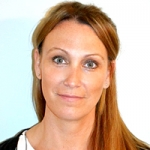
View Details / Enroll

View Details / Enroll
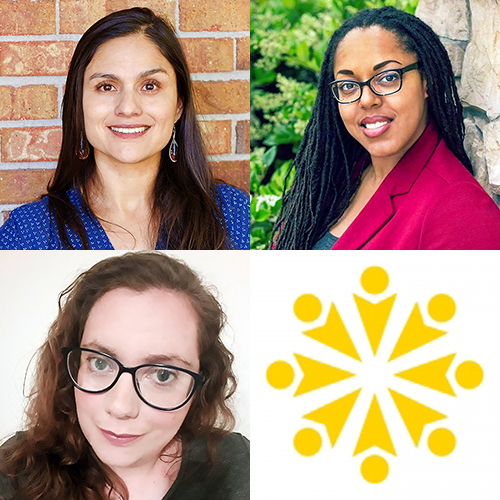

Paulina Erices is the mother of three multicultural Latino children and Project Director for Lifespan Local. Paulina earned her BS in Psychology from the Pennsylvania State University, a MS in Organizational leadership from the University of Denver and is completing her PhD in Health and Behavioral Sciences at the University of Colorado - Denver. Paulina has over 18 years of experience working with families with young children. As a Maternal Child Health specialist for Jefferson County Public Health, she developed a NICU follow-up home visitation program and the pediatric emergency preparedness plan, co-founded and coordinated the Conectando Network (former Adelante Jeffco), established community navigation and lactation support groups focused on the Latino Spanish speaking community, and lead other initiatives to support leadership and partnerships among communities and organizations. During the COVID-19 pandemic, she managed the new program Whole Community Inclusion to ensure the pandemic response and recovery implementation included health equity practices that recognize the needs and the strengths of priority populations in the county. Her areas of current work include promoting perinatal and infant mental health along the continuum of care; building community capacity to navigate health and education systems; facilitating organizational change to embrace linguistic and culturally responsive practices; and establishing community-placed participatory programs to strengthen communities. She likes to be with people, learn from and with others, and connect passions for meaningful work.
In 2014, Ghanaian-American mother and photographer, Vanessa Simmons authored the Normalize Breastfeeding™ movement to address the taboo of public breastfeeding in modern society. Her mission was to document diverse variations of normal infant feeding, across cultures and delivery methods of human milk.
Through Simmons' viral blog, her photographic speaking tour, philanthropy, and artistic inspiration; she mobilized and motivated thousands of women to share their breastfeeding photos on social media. After a very successful first year, she reached out to the Mayor of San Diego to proclaim June 27th the International Day to Normalize Breastfeeding, in support of the worldwide anniversary event!
Lactation educator and activist, Vanessa Simmons, is now speaking out at conferences and events across the country to eliminate general miseducation around the topic. On the Normalize Breastfeeding podcast, she interviews guests about experiences, advocacy, and activism within the infant feeding community worldwide.
As a public speaker, Simmons is focused on transforming the modern mindset around the natural, yet difficult task of breastfeeding. Vanessa trains lactation professionals to better understand and connect with millennial families online. She creatively motivates and inspires families to be mindful that this is a time to be cherished, and although fleeting, it is also a time to reinvent what will be acceptable for feeding generations of the future.
Simmons is an aspiring author and resides with her supportive husband and three children in San Diego, CA.
Lucy Ruddle is an IBCLC in the UK. She has a thriving private Practice on the South Coast and a busy Facebook page known for it's funny, relevant, and informative memes about breastfeeding and parenting. Lucy qualified in 2018 after 5 years of volunteering as a peer supporter and later as a breastfeeding counselor for a national breastfeeding helpline. She has written a book on relactation, called "Relactation - A guide to rebuilding your milk supply." which was published by Praeclarus Press in January 2020. Lucy's interest in relactation started after she went through the process herself for her eldest baby, and her drive to qualify as an IBCLC came from a second challenging breastfeeding journey with her younger son who was unable to latch for several months. Aside from lactation, Lucy holds a diploma in Child Psychology and worked for 15 years in early years settings, both with the children and in roles supporting parents. She prides herself on her listening focused approach to lactation support, and sees it as the key to good practice in her own work.
It’s a wonderful feeling when you’re able to support a family in getting to a place of successful breastfeeding/chestfeeding. Those moments when things suddenly click and baby starts nursing effectively and their overwhelmed parents are able to finally see an end to their struggles, are heartwarming and we celebrate those achievements for both our clients and ourselves. What doesn’t get talked about very often however, is the struggles that go alongside those triumphs. The caregiver burnout, compassion fatigue, guilt, and overwhelming feelings of failure that can derail our confidence in ourselves as care providers. This panel digs deep into the realities of working as a lactation care provider, examining both the struggles and possible solutions.

View Details / Enroll
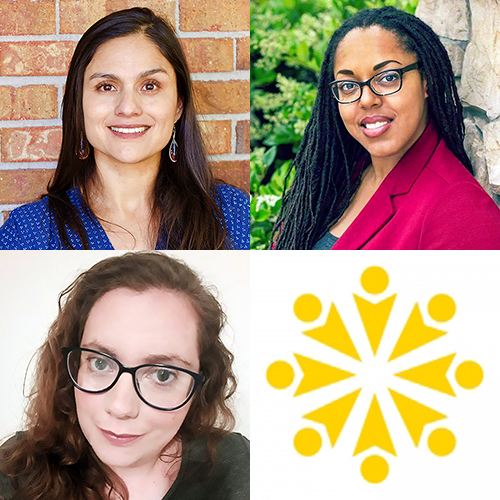
View Details / Enroll

The Remarkable Transition From Liquid to Air at Birth: The Implications for Neonatal Resuscitation

Karen H. Strange is a Certified Professional Midwife (1996), American Academy of Pediatrics/Neonatal Resuscitation Program Instructor (1992).
She is founder of the Integrative Resuscitation of the Newborn workshop, which includes the physiology of newborn transition. She teaches the “when, why and how” of helping newborns that are either not breathing or not breathing well, with incredible clarity. She helps the provider have a sense of what the baby is experiencing which leads to a more appropriate response to newborns in need. Karen has done over 1,000 hours of debrief/case reviews regarding resuscitation. She is an international speaker and has taught over 14,000 people worldwide. There are many neonatal resuscitation instructors but Karen teaches practical neonatal resuscitation, regardless of the place of birth. And her teachings instill a strong sense of confidence and competence in providers, so they can respond in the least traumatic way.
Topic: The Remarkable Transition From Liquid to Air at Birth: The Implications for Neonatal Resuscitation - [View Abstract]
Topic: When You Know Better, Do Better - [View Abstract]
Topic: When, Why and How to Breathe for Baby at Birth: More than Neonatal Resuscitation and the Failures in Resuscitation - [View Abstract]
Karen Strange delves into the subject that she knows best: neonatal resuscitation! Karen has accumulated over 1000+ hours of case reviews from birth professionals across the globe. From these debriefs, she’s identified exactly what gets missed, typical misunderstandings and the role that fear and panic play when delivering skills. In this presentation, Karen clearly explains and defines the when, why and how to respond to a newborn either not breathing or not breathing well, while providing trauma-free care regardless of where the baby might be born. At a fully equipped hospital, in a developing country or at home. You’ll leave her presentation with a new sense of clarity and deeper understanding as you confidently respond to babies who need your help.




